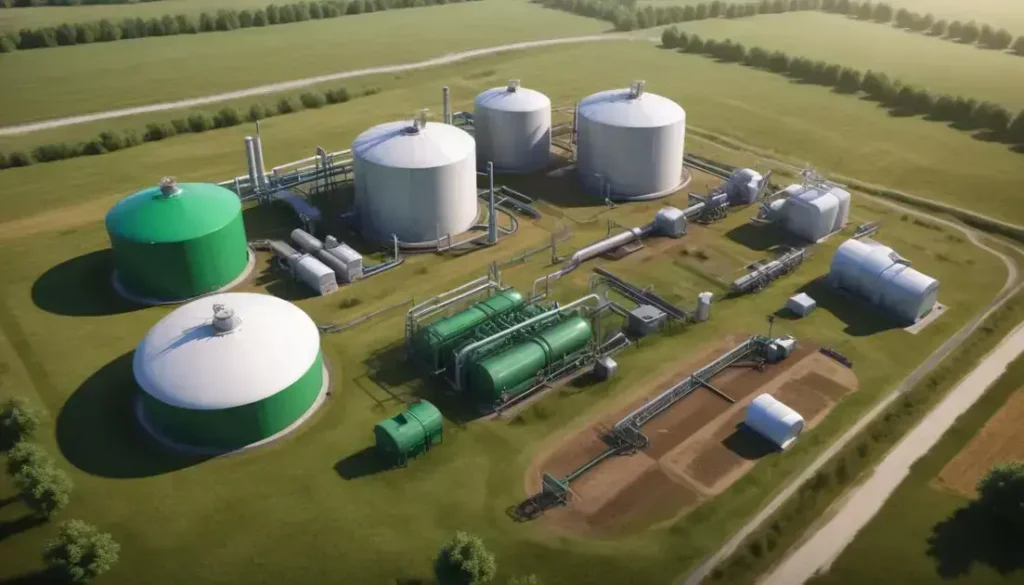DAC credits enable businesses to offset their carbon emissions by capturing CO2 from the atmosphere, playing a crucial role in achieving carbon neutrality and promoting sustainability.
DAC credits are set to transform how Australian businesses approach carbon removal. This partnership between Rubicon Carbon and Deep Sky is an exciting development for climate action enthusiasts.
Understanding DAC credits and their significance
Direct Air Capture (DAC) credits are pivotal in our fight against climate change. By enabling the removal of carbon dioxide from the atmosphere, DAC systems provide a way to account for emissions in a tangible way. These credits can be bought or sold, creating a market mechanism that incentivises companies to invest in sustainable practices.
The Role of DAC Credits: DAC credits play a crucial role in achieving carbon neutrality. They help businesses offset their greenhouse gas emissions by purchasing credits that directly correspond to the amount of CO2 pulled from the air. This means that every credit represents a measurable and verifiable contribution to the removal of carbon from the atmosphere.
Moreover, the growing interest in DAC technology opens up numerous opportunities for Australian businesses. As the nation transitions towards a low-carbon economy, DAC credits can enhance their reputation and competitiveness globally. Companies involved in sectors like mining, agriculture, and energy production are uniquely positioned to leverage these credits, aligning their operations with international sustainability goals.
In conclusion, the significance of DAC credits goes beyond mere compliance. They represent an avenue for innovation, showcasing how Australian businesses can adapt and thrive in an evolving landscape while contributing to the global effort against climate change.
The partnership between Rubicon Carbon and Deep Sky and its implications
The partnership between Rubicon Carbon and Deep Sky marks a significant step forward in carbon management and sustainability. By combining their expertise, both companies are poised to enhance the effectiveness of Direct Air Capture technology. This collaboration aims to scale up carbon dioxide removal processes, crucial for businesses striving for carbon neutrality.
Innovative Synergy: The alliance focuses on leveraging advanced technologies to optimise the capture of CO2 from the atmosphere. Rubicon Carbon brings its extensive knowledge in carbon markets, while Deep Sky contributes cutting-edge capture solutions. Together, they create a powerful model for other organisations aiming to implement similar sustainable practices.
As the demand for carbon credits rises, this partnership can serve as a blueprint for Australian businesses looking to navigate the evolving landscape of environmental responsibility. By reducing dependency on traditional offsets, they can make substantial impacts on their carbon footprints. This potentially positions them as leaders in the global fight against climate change.
Moreover, the collaboration fosters innovation in less established sectors, offering new opportunities for investment and growth. Such partnerships underscore the importance of collaboration among organisations to achieve meaningful advancements in sustainability.
In Summary: The Importance of DAC Credits and Partnerships
The rise of Direct Air Capture (DAC) credits is a game changer for businesses striving for sustainability. These credits not only allow companies to offset their emissions but also provide a clear and measurable way to contribute to climate action.
Partnerships, like the one between Rubicon Carbon and Deep Sky, showcase how collaboration can enhance the effectiveness of carbon management strategies. By integrating advanced technologies, businesses can implement more efficient methods to capture and remove CO2.
As Australia moves towards a low-carbon future, understanding and utilising DAC credits will be vital for businesses across various sectors. Embracing these innovations can position them as leaders in environmental responsibility and help them meet the growing demand for sustainable practices.
In conclusion, the combination of DAC technology and strategic partnerships has the potential to significantly impact climate goals and drive the economy forward.
Frequently Asked Questions
What are DAC credits and why are they important?
DAC credits represent a measurable way to offset carbon emissions by capturing CO2 from the atmosphere. They are crucial for businesses aiming for sustainability.
How does the partnership between Rubicon Carbon and Deep Sky benefit businesses?
This partnership combines expertise in technology and carbon markets, allowing businesses to efficiently scale up their carbon capture efforts.
Why should Australian businesses invest in DAC technology?
Investing in DAC technology positions businesses as leaders in sustainability and helps meet growing environmental regulations and consumer expectations.
What sectors can benefit from Direct Air Capture technology?
Sectors like mining, agriculture, and energy are particularly well-suited to leverage DAC technology for enhancing their sustainability efforts.
How can DAC credits impact carbon neutrality goals?
DAC credits provide businesses with a reliable method to offset emissions, directly contributing to their overall carbon neutrality ambitions.
What role do innovative partnerships play in climate action?
Innovative partnerships foster the sharing of knowledge and resources, enabling more effective strategies for carbon management and sustainability.


